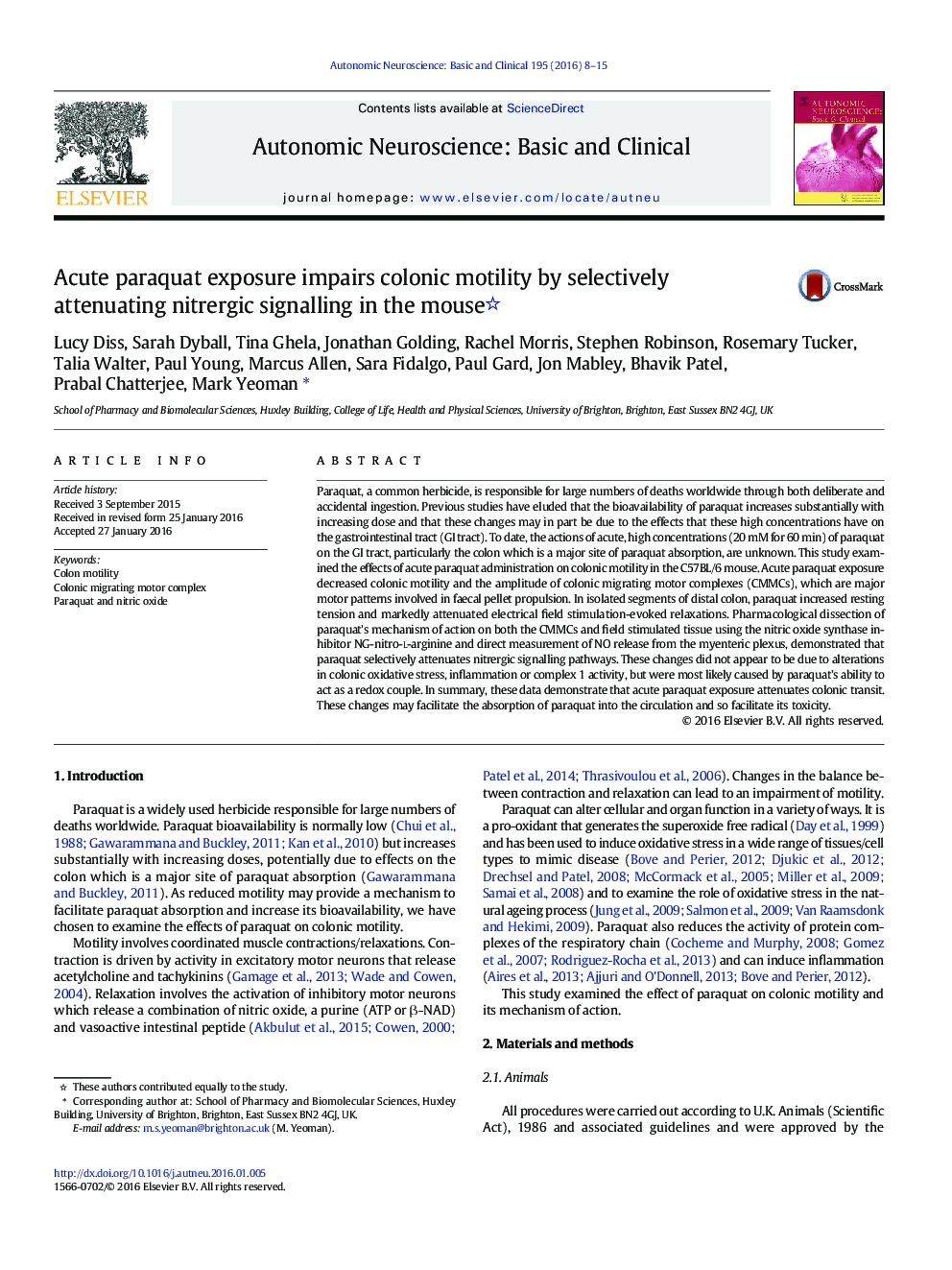| کد مقاله | کد نشریه | سال انتشار | مقاله انگلیسی | نسخه تمام متن |
|---|---|---|---|---|
| 3034469 | 1579520 | 2016 | 8 صفحه PDF | دانلود رایگان |
• Acute exposure to paraquat significantly impairs colonic transit in the mouse.
• Paraquat reduces the amplitude of CMMCs and selectively inhibits NO signalling.
• These effects are not due to changes in oxidative stress, inflammation or Complex 1 activity.
Paraquat, a common herbicide, is responsible for large numbers of deaths worldwide through both deliberate and accidental ingestion. Previous studies have eluded that the bioavailability of paraquat increases substantially with increasing dose and that these changes may in part be due to the effects that these high concentrations have on the gastrointestinal tract (GI tract). To date, the actions of acute, high concentrations (20 mM for 60 min) of paraquat on the GI tract, particularly the colon which is a major site of paraquat absorption, are unknown. This study examined the effects of acute paraquat administration on colonic motility in the C57BL/6 mouse. Acute paraquat exposure decreased colonic motility and the amplitude of colonic migrating motor complexes (CMMCs), which are major motor patterns involved in faecal pellet propulsion. In isolated segments of distal colon, paraquat increased resting tension and markedly attenuated electrical field stimulation-evoked relaxations. Pharmacological dissection of paraquat's mechanism of action on both the CMMCs and field stimulated tissue using the nitric oxide synthase inhibitor NG-nitro-l-arginine and direct measurement of NO release from the myenteric plexus, demonstrated that paraquat selectively attenuates nitrergic signalling pathways. These changes did not appear to be due to alterations in colonic oxidative stress, inflammation or complex 1 activity, but were most likely caused by paraquat's ability to act as a redox couple. In summary, these data demonstrate that acute paraquat exposure attenuates colonic transit. These changes may facilitate the absorption of paraquat into the circulation and so facilitate its toxicity.
Figure optionsDownload high-quality image (48 K)Download as PowerPoint slide
Journal: Autonomic Neuroscience - Volume 195, February 2016, Pages 8–15
